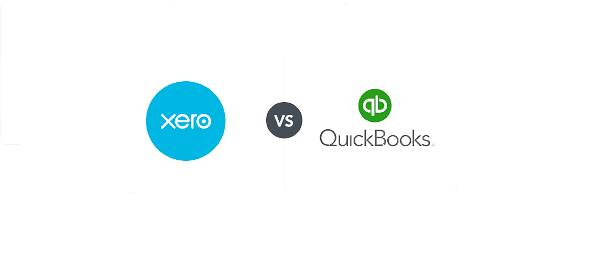A crucial component of any business is bookkeeping, which can be made simpler and more effective by selecting the appropriate software. Xero and QuickBooks are two of the most popular bookkeeping software programmes. Although the two software alternatives offer comparable functions, they do differ in some important ways. In this article, we’ll contrast Xero with QuickBooks and point out their main distinctions.
Why is Bookkeeping Vital for Businesses?
First let’s understand, Why is bookkeeping vital for businesses?

Any successful firm depends on proper bookkeeping. It is, in simple terms, the process of monitoring a company’s financial transactions. This includes documenting the costs, earnings, and other financial transactions that take place within a business. Making informed business decisions requires having a thorough understanding of a company’s financial situation, which is the aim of bookkeeping.
Bookkeeping includes arranging and categorising financial transactions, balancing accounts, and generating financial reports.
Making ensuring a business is successful, in conformity with tax regulations, and able to make sound financial decisions requires a lot of work.
Any business needs to keep accurate books, and the correct bookkeeping software may make this process easier to do. Xero and QuickBooks are two of the most widely used bookkeeping software programmes on the market. Both software programmes provide functionality that is comparable, but they also differ in a few key ways.
Differences Between Xero and QuickBooks
In this article, we’ll compare Xero with QuickBooks and point out their main distinctions.
User Interface
The user interface is one of the most obvious distinctions between Xero and QuickBooks.
While QuickBooks has a more classic and slightly cluttered design, Xero is known for its slick and contemporary interface. Xero might be a better choice for firms that place a high value on usability and aesthetics.
Pricing

Pricing is another difference between Xero and QuickBooks. For businesses with a single person, Xero provides a starting package that is completely free. But QuickBooks is more costly, with even the entry-level subscription costing more than Xero’s free plan.
For companies who need those extra features, QuickBooks offers more options and can be more affordable.
Tools
Both Xero and QuickBooks provide a number of tools that can make it easier for businesses to manage their money. Strong invoicing and bank reconciliation tools made popular by Xero make it easier to create and send invoices and reconcile bank transactions. However, QuickBooks excels at managing payroll and inventories. Additionally, QuickBooks provides a more thorough reporting tool that makes it simpler for businesses to monitor their finances and take wise decisions. One piece of software could be a better fit for a company’s needs than another.
Integrations
Both Xero and QuickBooks may connect to various types of software, especially accounting programs, payroll programs, and e-commerce platforms. But Xero has more connectors, which can make it a better choice for companies with more complicated requirements. Interestingly, QuickBooks has a larger percentage of built-in functions, which can be meaningful for companies that need a comprehensive solution.
Customer Support
Customer support is another area where Xero and QuickBooks diverge. For companies that want prompt assistance, Xero provides email and live chat support that is available around-the-clock. During regular business hours, QuickBooks offers phone, email, and live chat assistance. Both businesses offer online support materials, such as user manuals and video lessons.
To sum up, both Xero and QuickBooks offer reliable bookkeeping solutions, but they do differ in several ways. When deciding between the two, businesses should take their unique requirements and priorities into account. For companies that value aesthetics and usability above all else, Xero might be the best choice, whereas QuickBooks might be more appropriate for those needing more sophisticated capabilities. The best option will ultimately depend on the particular requirements of the company.
Also Read – How Xero Bookkeeping Can Help You Streamline Your Finances and Save Time


